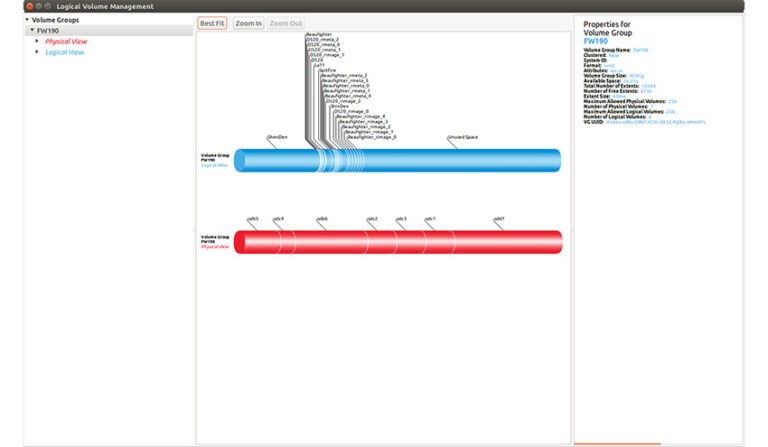GNOME 3.22 is scheduled to be released today. Along with this release come brand new recommendations for distributions on which applications should be installed by default, and which applications should not. I’ve been steadily working on these since joining the release team earlier this year, and I’m quite pleased with the result.
When a user installs a distribution and boots it for the first time, his or her first impression of the system will be influenced by the quality of the applications that are installed by default. Selecting the right set of default applications is critical to achieving a quality user experience. Installing redundant or overly technical applications by default can leave users confused and frustrated with the distribution. Historically, distributions have selected wildly different sets of default applications. There’s nothing inherently wrong with this, but it’s clear that some distributions have done a much better job of this than others. For instance, a default install of Debian 8 with the GNOME desktop includes two different chess applications, GNOME Chess and XBoard. Debian fails here: these applications are redundant, for starters, and the later app looks like an ancient Windows 95 application that’s clearly out of place with the rest of the system. It’s pretty clear that nobody is auditing the set of default applications here, as I doubt anyone would have intentionally included Xboard; it turns out that XBoard gets pulled in by Recommends via an obscure chess engine that’s pulled in by another Recommends from GNOME Chess, so I presume this is just an accident that nobody has ever cared to fix. Debian is far from the only offender here; you can find similar issues in most distributions. This is the motivation for providing the new default app recommendations.
Most distributions will probably ignore these, continue to select default apps on their own, and continue to do so badly. However, many distributions also strive to provide a pure, vanilla GNOME experience out-of-the-box. Such distributions are the target audience for the new default app guidelines. Fedora Workstation has already adopted them as the basis for selecting which apps will be present by default, and the result is a cleaner out-of-the-box experience.
Update: I want to be clear that these guidelines are not appropriate for all distros. Most distros are not interested in providing a “pure GNOME experience.” Distros should judge for themselves if these guidelines are relevant to them.
Classifications
The canonical source of these classifications is maintained in JHBuild, but that’s not very readable, so I’ll list them out here. The guidelines are as follows:
- Applications classified as core are intended to be installed by default. Distributions should only claim to provide a vanilla GNOME experience if all such applications are included out-of-the-box.
- Applications classified as extra are NOT intended to be installed by default. Distributions should not claim to provide a vanilla GNOME experience if any such applications are included out-of-the-box.
- Applications classified as Incubator are somewhere in between. Incubator is a classification for applications that are designed to be core apps, but which have not yet reached a high enough level of quality that we can move them to core and recommend they be installed by default. If you’re looking for somewhere to help out in GNOME, the apps marked Incubator would be good places to start.
Core apps
Distributions that want to provide a pure GNOME experience MUST include all of the following apps by default:
- Archive Manager (File Roller)
- Boxes
- Calculator
- Calendar
- Characters (gnome-characters, not gucharmap)
- Cheese
- Clocks
- Contacts
- Disk Usage Analyzer (Baobab)
- Disks
- Document Viewer (Evince)
- Documents
- Files (Nautilus)
- Font Viewer
- Help (Yelp)
- Image Viewer (Eye of GNOME)
- Logs (gnome-logs, not gnome-system-log)
- Maps
- Photos
- Screenshot
- Software
- System Monitor
- Terminal
- Text Editor (gedit)
- Videos (Totem)
- Weather
- Web (Epiphany)
Notice that all core apps present generic names (though it’s somewhat debatable if Cheese qualifies as a generic name, I think it sounds better than alternatives like Photo Booth). They all also (more or less) follow the GNOME Human Interface Guidelines.
The list of core apps is not set in stone. For example, if Photos or Documents eventually learn to provide good file previews, we wouldn’t need Image Viewer or Document Viewer anymore. And now that Files has native support for compressed archives (new in 3.22!), we may not need Archive Manager much longer.
Currently, about half of these applications are arbitrarily marked as “system” applications in Software, and are impossible to remove. We’ve received complaints about this and are mostly agreed that it should be possible to remove all but the most critical core applications (e.g. allowing users to remove Software itself would clearly be problematic). Unfortunately this didn’t get fixed in time for GNOME 3.22, so we will need to work on improving this situation for GNOME 3.24.
Incubator
Distributions that want to provide a pure GNOME experience REALLY SHOULD NOT include any of the following apps by default:
- Dictionary
- Music
- Notes (Bijiben)
- Passwords and Keys (Seahorse)
We think these apps are generally useful and should be in core; they’re just not good enough yet. Please help us improve them.
These are not the only apps that we would like to include in core, but they are the only ones that both (a) actually exist and (b) have actual releases. Take a look at our designs for core apps if you’re interested in working on something new.
Extra apps
Distributions that want to provide a pure GNOME experience REALLY SHOULD NOT include any of the following apps by default:
- Accerciser
- Builder
- dconf Editor
- Devhelp
- Empathy
- Evolution
- Hex Editor (ghex)
- gitg
- Glade
- Multi Writer
- Nemiver
- Network Tools (gnome-nettool)
- Polari
- Sound Recorder
- To Do
- Tweak Tool
- Vinagre
Not listed are Shotwell, Rhythmbox, or other applications hosted on git.gnome.org that are not (or are no longer) part of official GNOME releases. These applications REALLY SHOULD NOT be included either.
Note that the inclusion of applications in core versus extra is not a quality judgment: that’s what Incubator is for. Rather, we classify apps as extra when we do not believe they would be beneficial to the out-of-the-box user experience. For instance, even though Evolution is (in my opinion) the highest-quality desktop mail client that exists today, it can be very difficult to configure, the user interface is large and unintuitive, and most users would probably be better served by webmail. Some applications listed here are special purpose tools that are probably not generally useful to the typical user (like Sound Recorder). Other applications, like Builder, are here because they are developer tools, and developer tools are inherently extremely confusing to nontechnical users. (Update: I originally used Polari instead of Builder as the developer tool example in the previous sentence. It was a bad example.)
Games
What about games? It’s OK to install a couple of the higher-quality GNOME games by default, but none are necessary, and it doesn’t make sense to include too many, since they vary in quality. For instance, Fedora Workstation does not include any games, but Ubuntu installs GNOME Mahjongg, GNOME Mines, and GNOME Sudoku. This is harmless, and it seems like a good list. I might add GNOME Chess, or perhaps GNOME Taquin. I’ve omitted games from the list of extra apps up above, as they’re not my focus here.
Third party applications
It’s OK to include a few third-party, non-GNOME applications by default, but they should be kept to a reasonable minimum. For example Fedora Workstation includes Firefox (instead of Epiphany), Problem Reporting (ABRT), SELinux Troubleshooter, Shotwell (instead of GNOME Photos), Rhythmbox, and LibreOffice Calc, Draw, Impress, and Writer. Note that LibreOffice Base is not included here, because it’s not reasonable to include a database management tool on systems designed for nontechnical users. The LibreOffice start center is also not included, because it’s not an application.
Summing up
Distributions, consider following our recommendations when deciding what should be installed by default. Other distributions should feel encouraged to use these classifications as the basis for downstream package groups. At the very least, distributions should audit their set of default applications and decide for themselves if they are appropriate. A few distributions have some horrendous technical stuff visible in the overview by default; Fedora Workstation shows it does not have to be this way.






